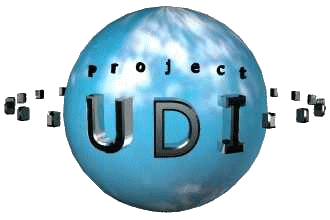| |||
| |||
| |||
| |||
| |||
| |

UDI Reference Implementation Home Page
This is the home of the reference implementation of the Uniform Driver Interface (UDI) 1.01 Specification. It is provided under a BSD-style license, making it freely available for use in your projects as long as you respect the copyright notice requirements.
The UDI environment is a relatively autonomous, low-level I/O subsystem. It completely surrounds conforming device driver modules, providing them with a consistent interface to and from the host operating system and among cooperating drivers. Great care has been taken to isolate drivers from the "impedance matching" required for an I/O card to perform well on a given OS or platform. The driver is always invoked by procedure calls and interacts with the embedding OS and hardware via environment calls, providing the driver with full isolation from the details of its environment while retaining sufficient flexibility and performance in the OS.
Announcements
SCO OSes ship with UDI robertl - 2003-04-01 11:02It just occurred to me that we never announced this in this group. Both of the SCO System V OSes now ship with UDI in the base OS.
UnixWare 7.1.3
New UDI Reference snapshot. robertl - 2001-09-30 20:04
I have just created a new tarball of the UDI reference implementation and placed it in the file download area for the convenience of those that don't want to use CVS to get the source.
This implementation of the Uniform Driver Interface support Linux 2.2 through 2.4, OpenServer 5, UnixWare 7, and OpenUNIX 8. It also has ports for FreeBSD and Darwin in progress.
Linux UDI environment ready for 2.4.x kernels robertl - 2001-08-09 13:19
The UDI environment for Linux, provided as part of the UDI reference implementation, has been upgraded to work with 2.4.x kernels.
Support for the 2.4 series of Linux kernels includes the GIO, Bridge, SCSI, and NIC mappers.
ProjectUDI POSIX environment for Darwin now available. robertl - 2001-06-09 08:58
A port of ProjectUDI's POSIX test environment reference implementation
has been provided for the Darwin 1.3.3 (MacOS 10.0.3) operating system.
In addition to the existing FreeBSD, Solaris, UnixWare and Linux POSIX
UDI Reference Implementation released robertl - 2001-02-13 17:48
We are pleased to announce the initial release of a reference implementation of UDI, the Uniform Driver Interface. UDI provides advanced features in a driver programming model, source portability scross OSes and binary portability within a CPU architecture.